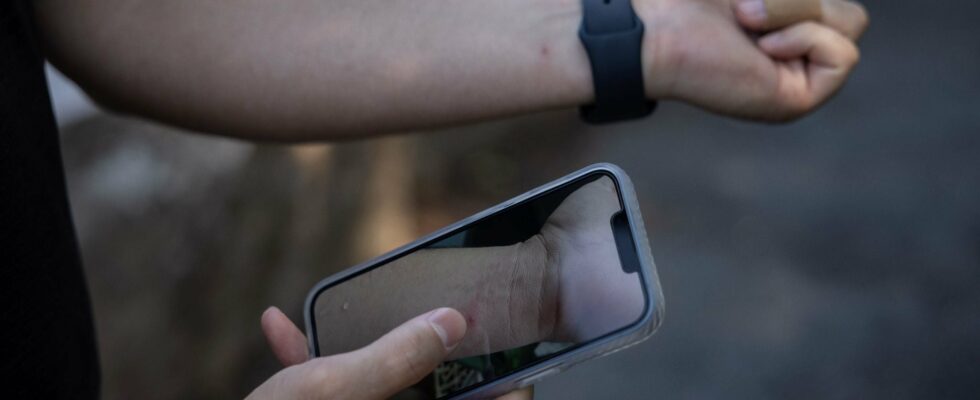European Union countries must “prepare” for the Mpox epidemic to spread to their territory, the EU health agency announced on Friday, August 16. Two days earlier, the resurgence of this virus in the Democratic Republic of Congo (DRC), which also affects Burundi, Kenya, Rwanda and Uganda, prompted the World Health Organization (WHO) to declare a public health emergency of international concern, the highest alarm it can sound. The first case of the most dangerous variant, Clade 1b, has since been discovered in Sweden, marking its entry onto European soil.
Sexual intercourse, close contact and droplets
This viral disease, discovered in 1958 in Denmark, was first recorded in humans in 1970 in what is now the Democratic Republic of Congo (DRC). Several strains have now developed in several parts of the globe. There are two subtypes of the virus: clade 2, endemic in West Africa, and clade 1, more virulent and more contagious, endemic in the Congo Basin in Central Africa since late 2023. Around 16,000 “potential” cases and 548 deaths have been recorded this year in the DRC.
The disease spreads from animals to humans, but is also transmitted through close physical contact with a person infected with the virus. According to the Ministry of Health French: Contagion occurs during “close physical contact, particularly during sexual intercourse, through contact of the skin or mucous membranes with pimples or scabs”, when sharing toiletries or linen or “during a long face-to-face encounter through droplets”. “Sexual intercourse, with or without penetration, meets the conditions for potential contamination. More generally, anyone who has close physical contact with an infected person risks contracting the disease”, specifies the Ministry of Health. Clade 1b, the most dangerous variant, does not require sexual intercourse to be transmitted.
Symptoms worsen with new variant
During the first outbreak in 2022 (clade 2), which was particularly active among homosexual and bisexual men, the symptoms observed were mainly limited to rashes and localized lesions, particularly on the face, mouth, hands and feet or genitals. The symptoms observed with the new Clade 1b variant are all the more virulent: lesions and rashes can now appear all over the body. They can in many cases be followed by fever, muscle pain, enlarged lymph nodes, headaches or severe fatigue, lists the Ministry of Health.
While in the majority of cases, Mpox “heals spontaneously, after two to three weeks”, it can in some cases be complicated by superinfection of skin lesions or respiratory, digestive, ophthalmological or neurological disorders”. With an estimated mortality rate of 3.6%, those most at risk are pregnant women, young children and the immunocompromised.
A vaccine whose effectiveness is questioned
There is an approved vaccine against Mpox, which is 80% effective according to some doctors. “It is essential to make vaccines more available, which is not yet the case, while in France we managed to vaccinate tens of thousands of people in 2022 and 2023,” explained Antoine Gessain, professor at the Pasteur Institute, this week to L’Express. The latter had then been administered mainly “to men, reporting multiple sexual partners, having sexual relations with men”. The effectiveness of these vaccines has nevertheless since been questioned by Public Health France, in a report from April 2023“To date, there is little perspective on the effectiveness of third-generation vaccines against Mpox infection. There is no data on long-term protection after a complete vaccination course,” the French authority noted.
Faced with the new variant, the WHO nevertheless invited global manufacturers of Mbox vaccines this week to come forward with a view to an emergency use authorization. The Danish pharmaceutical laboratory Bavarian Nordic, manufacturer of a vaccine targeting Mpox, also announced this Friday that it had asked the European Medicines Agency to extend the use of its serum to adolescents aged 12 to 17. The American Department of Health announced on Wednesday that the United States would donate 50,000 doses of Mpox vaccine to the DRC to fight the spread of the epidemic.
